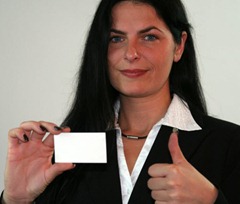 We can easily take for granted people who are important to us. I don't mean clients or family or ourselves. I mean external collaborators (e.g., centers of influence, partners, affiliates, team members).
We can easily take for granted people who are important to us. I don't mean clients or family or ourselves. I mean external collaborators (e.g., centers of influence, partners, affiliates, team members). Do you cancel, postpone or shorten meetings with collaborators? That sends a bad message about your
- reliability (e.g., "I'll meet with you unless something more important comes along.")
- planning (e.g., "I haven't finished _______ which is due tomorrow.")
Unforeseen
There will be situations outside your control. You or a family member might get sick. You might get a flat tire on the way. A freak storm may make the roads treacherous. You'll get some sympathy. If the other party faced the unforeseen, you'd understand too.Other times, you can plan around potential perils. For instance, since traffic is unpredictable, you could leave a cushion.
Energy
There's anticipation for a meeting. There's energy too. Cancel and both are lost. The balloon gets popped. The spark may vanish forever. The consequences may not become clear until you’re looking for help later.An appointment is a promise that rescheduling breaks. That’s hardly a way to build trust. Ditto for canceling or forgetting an appointment. Deduct points for answering your phone or checking email during a meeting.
Intentions
We judge others by their behavior. We judge ourselves by our intentions.What we do makes sense to us but that doesn’t mean others understand. Unintended harm is still harm. What would not harm you may harm another.
--- Ian Percy
What Happened?
In the last year, I’ve had several situations in which a collaborator canceled or rescheduled an appointment with a day’s notice or less. The reasons looked relatively minor but the consequences are not. They lost out and I got the gift of free time. And content for a blog post.I’ve been tempted to tell the offenders but decided they aren’t worth the time.
Controllable
Leaving too little time between meetings or for meetings saps energy. If the discussions are flowing well, they get cut short if you need to dash to your next meeting. Another solution is to leave ample gaps between meetings and use the time savings to do other work.That’s the end of this rant!



